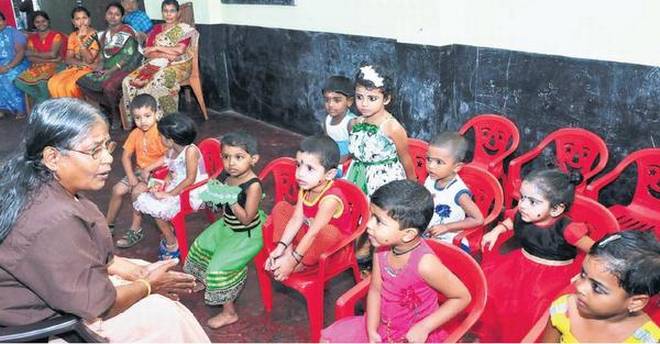The absence of a strong regulatory framework remains a key challenge to ensuring quality of ECE programmes nationwide
Across India, a lack of effective regulation appears to be eroding the overall quality of Early Childhood Education (ECE).
ECE holds the key to every child’s lifelong development, as neuroscience research has found that the experience of the infant and young child provides the foundation for long-term physical and mental health along with cognitive development.
As per the Census 2011, India has 158.7 million children in the 0-6 years’ age group. The National Early Childhood Care and Education policy, adopted in September 2013, stated that there was no reliable data available on the actual number of children benefiting from Early Childhood Care and Education (ECCE). Nor was there clarity on the breakup of the types of services delivered despite the existence of multiple service providers.
Estimates by the Ministry of Women and Child Development in 2011 showed that about 76.5 million children (48.2 per cent) were reported to be covered under the Integrated Child Development Services (ICDS), which has ECE as one of its six components, in addition to health and nutrition. The ECCE policy accepted that the unregulated private channel, both organised and unorganised, is perhaps the second largest service provider of ECCE, and its outreach is steadily spreading even to the rural areas across the country although with varied quality.
This channel suffers from issues of inequitable access, uneven quality and growing commercialisation, it said.
Preferred choice
Findings from the Indian Early Childhood Education Impact Study (survey of ECE centres in Andhra Pradesh, Assam and Rajasthan) by the Centre for Early Childhood Education and Development (CECED) under the Ambedkar University, Delhi, showed that “private pre-schools are emerging as the preferred choice of parents for ECE with most parents perceiving these to be better quality, for which they are also willing to pay a fee”.
“But our assessment of the quality of these community-preferred private ECE centres shows that they are not necessarily providing the recommended age and developmentally appropriate pre-school curriculum to young children,” says Professor. Venita Kaul, Director of CECED.
However, the aspirations of parents have gone up and they believe that sending children to private schools would offer quality learning.
Interestingly, researchers pointed out that both private and anganwadi models demonstrated lack of developmentally appropriate curricula, with the focus being either on teaching of reading, writing and arithmetic, rather than providing a strong conceptual and cognitive foundation and development of the child.
A decline in the qualification and training levels of teachers in private pre-schools and anganwadis continues to be a major concern.
Ensuring quality of the ECE programme remains a key challenge before the Centre, especially in view of the absence of a strong institutional mechanism and a regulatory framework across sectors.
[Source:-The Hindu]



